 ARTHURIANA
ARTHURIANA 
What is Arthuriana?
Arthuriana is any type of media focusing on the Legends & Mythology of King Arthur.
Commonly percieved as a part of British mythology, the story of King Arthur actually orignated in Wales as early as 830 CE, and wasn't popularized in England until Geoffrey of Monmouth’s Historia regum Britanniae in 1136 CE.
The historical existance of King Arthur is hotly debated, but if he did exist, his reign would have occured sometime between 500-600 CE, centuries before any written text about him was created. Many modern historians believe that the character of King Arthur was inspired by a Roman warlord leader who fought against the Anglo-Saxons during that time.
Regardless of historical validity, King Arthur exists time and time again over the centuries, as writers continue to bring him and his story to life.

![]()
MY ARTHURIANA BOOKS
Arthuriana books that I've thrifted or found at used book stores.
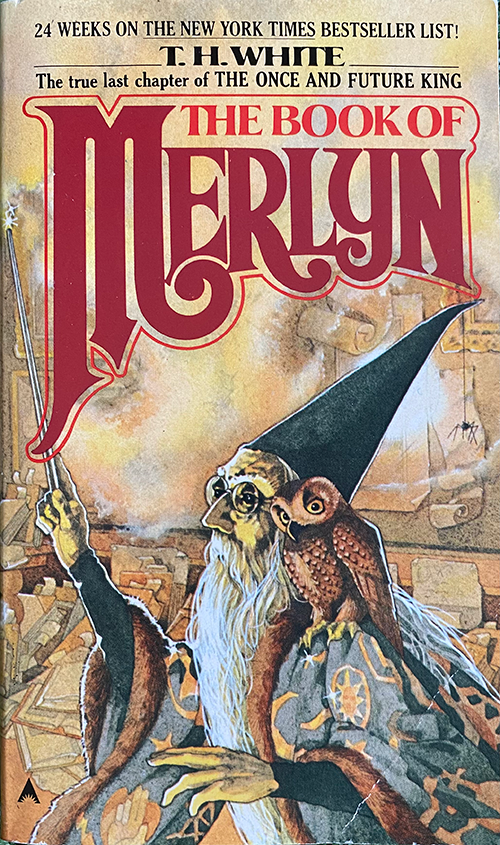
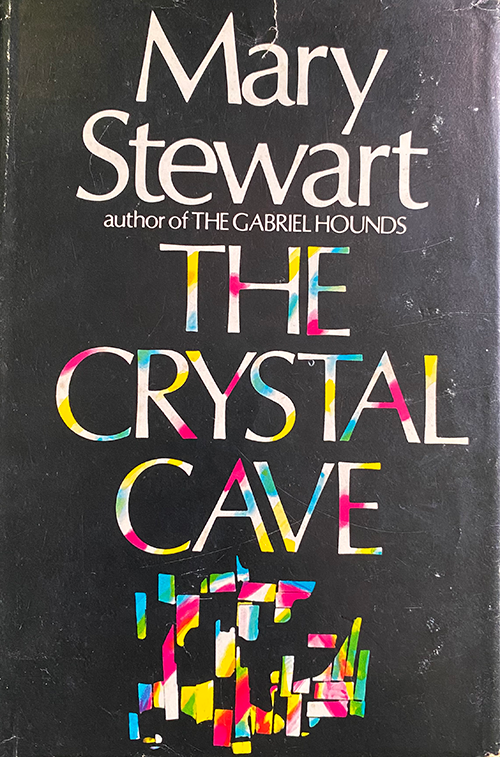
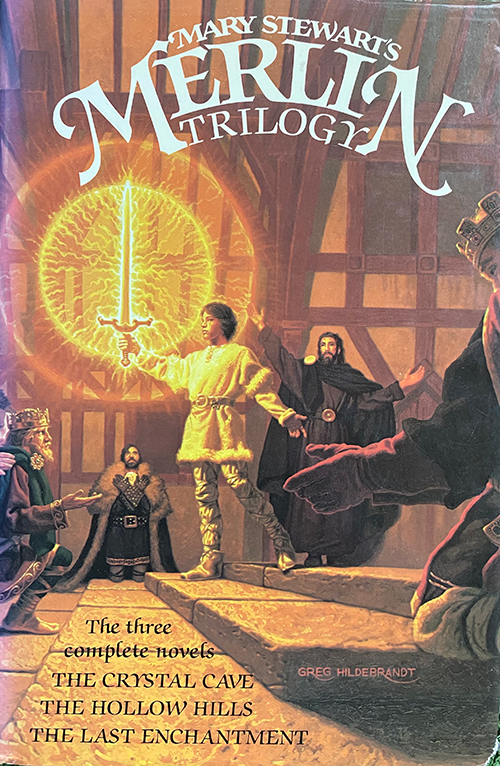
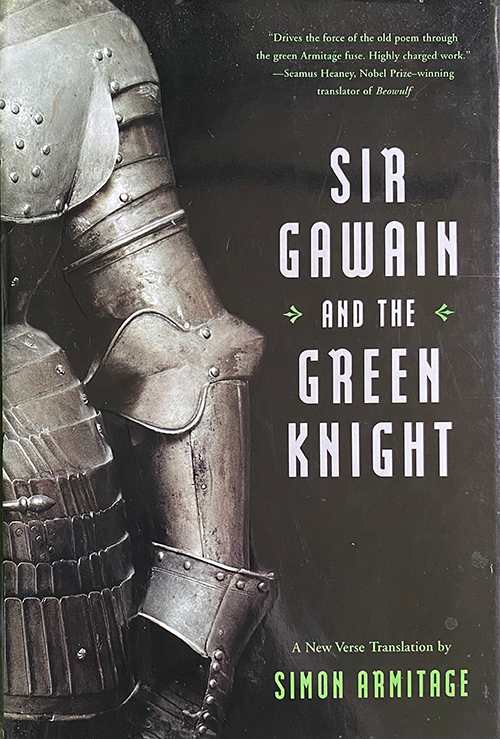
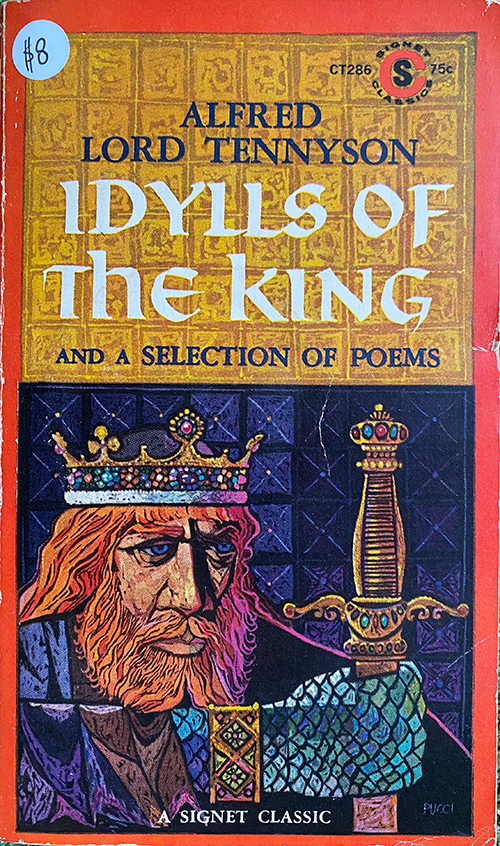
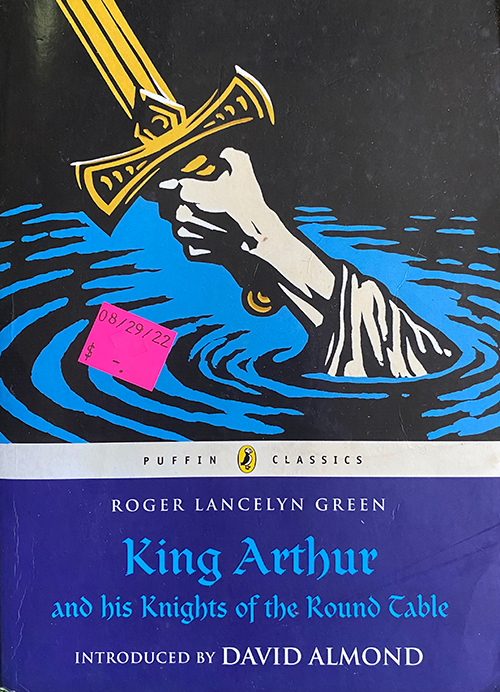
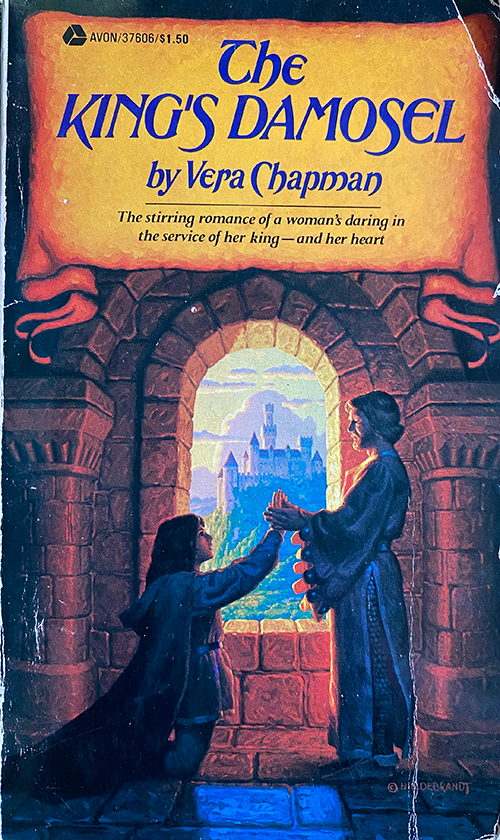
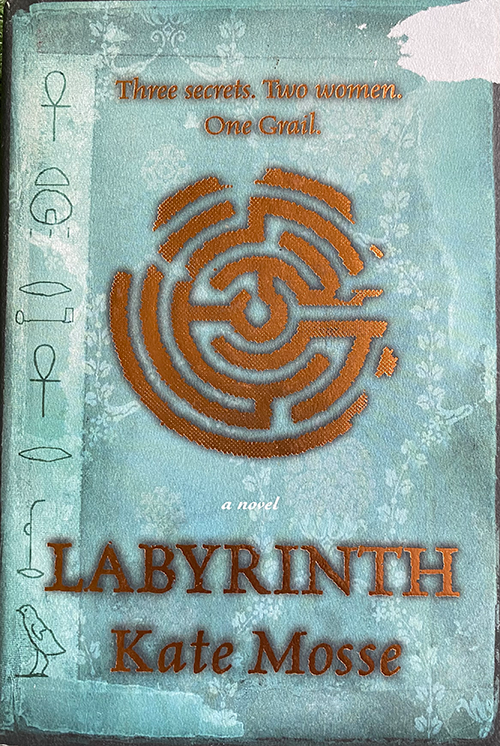
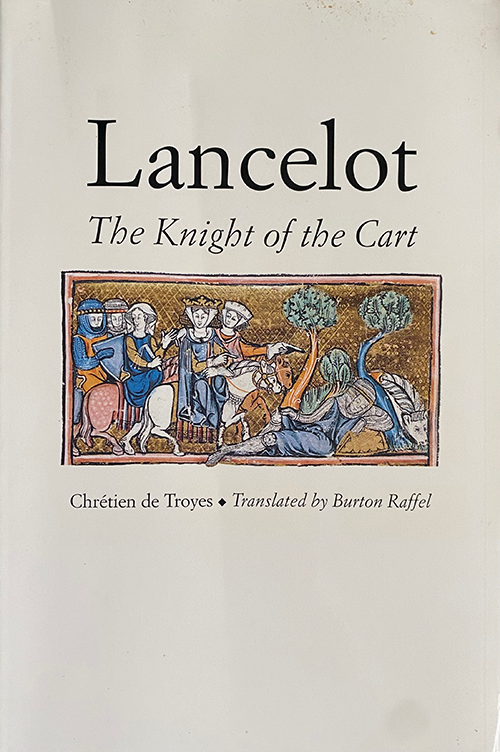
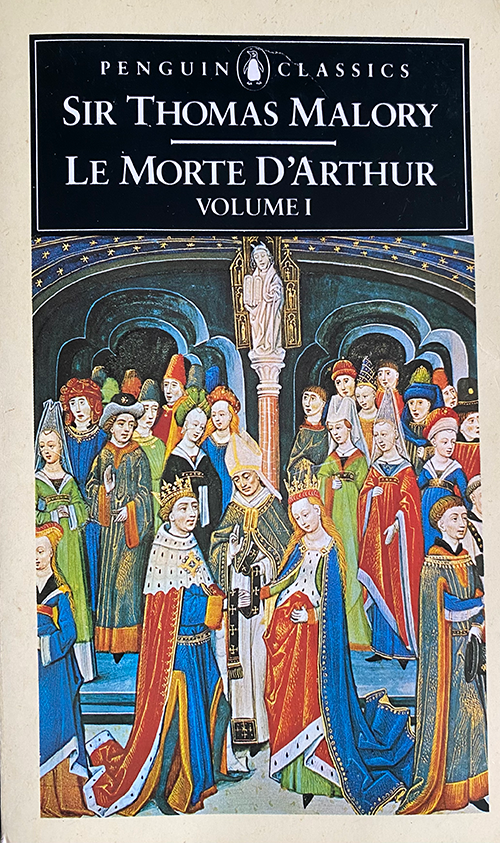
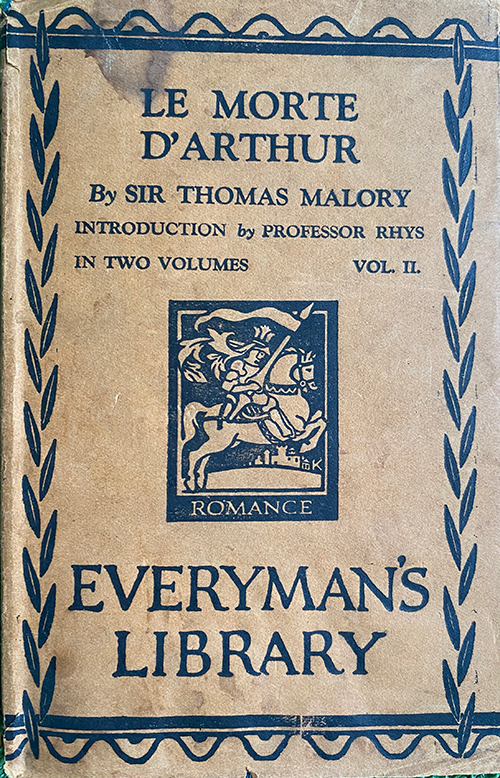
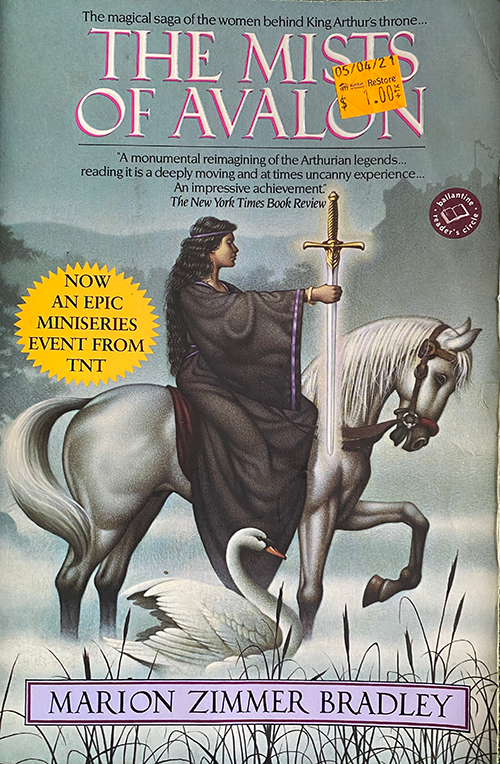
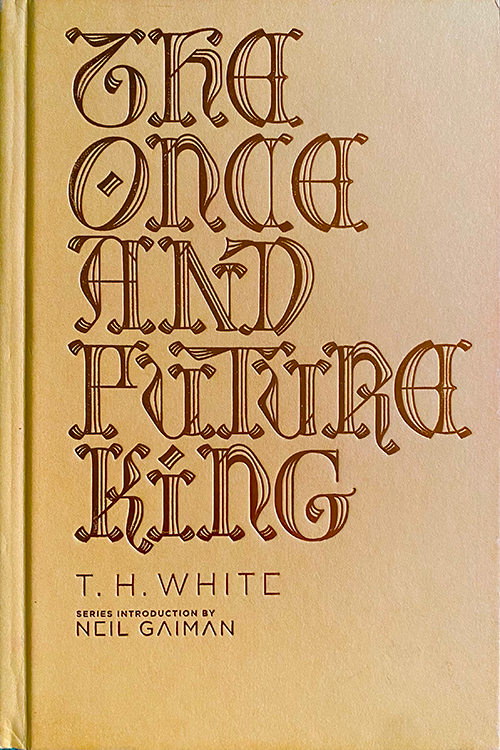
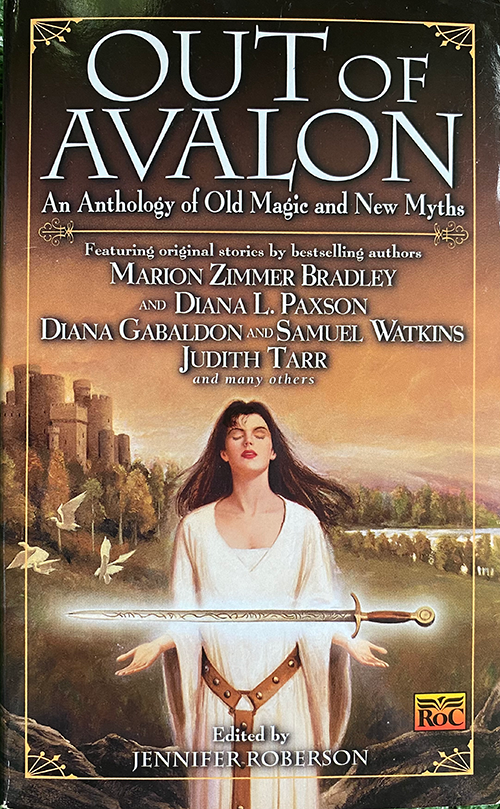
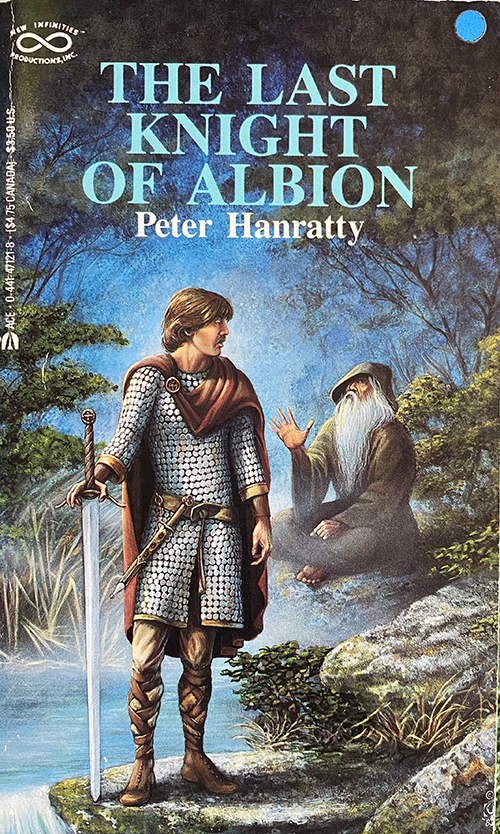
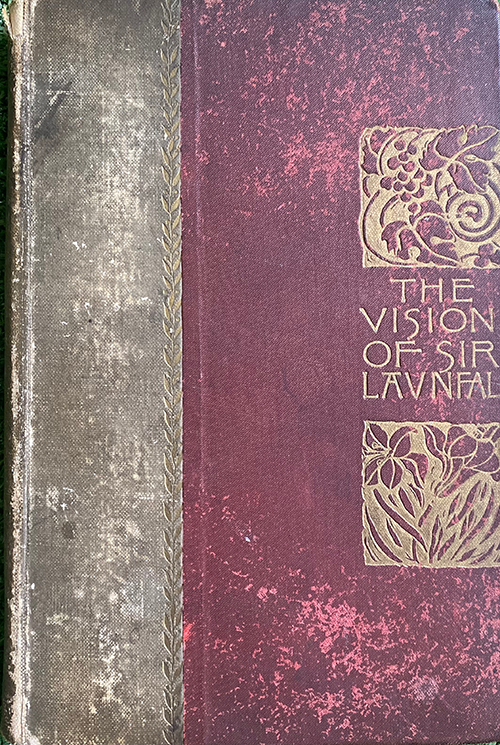

![]()
ONCE AND FUTURE KING COLLECTION
The Once and Future King was the first book that got me interested in learning more about Arthurian Legends! I love going to used bookstores, so I've collected some fun different covers.
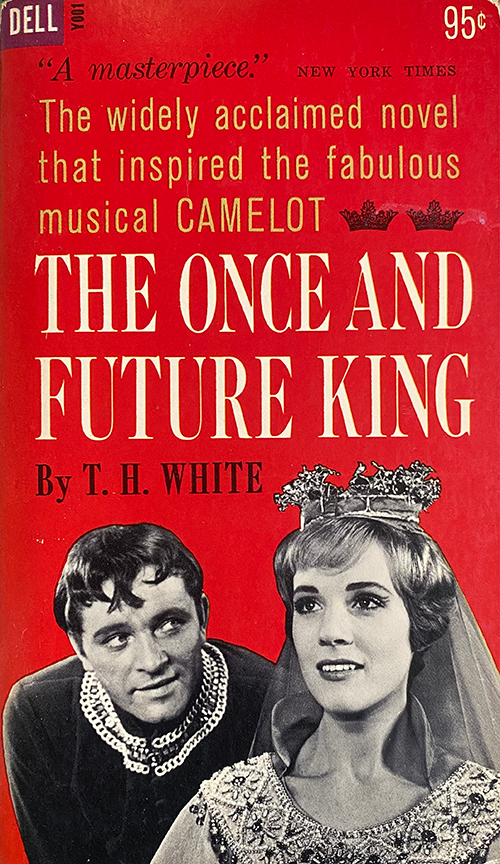
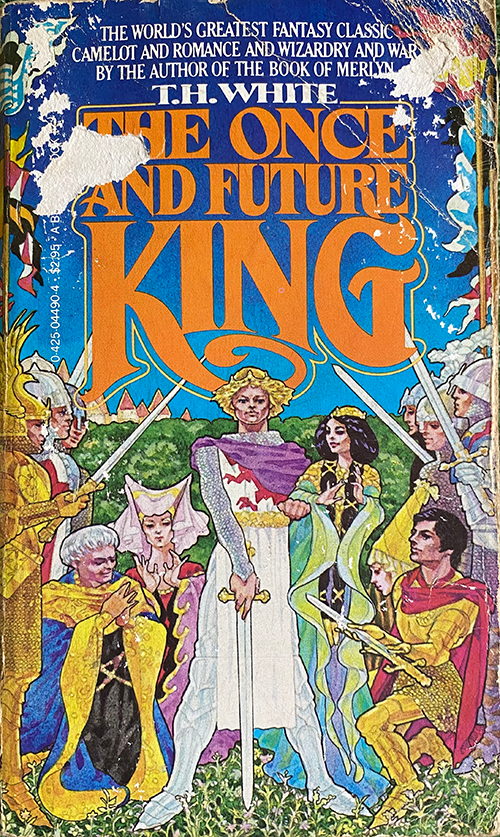
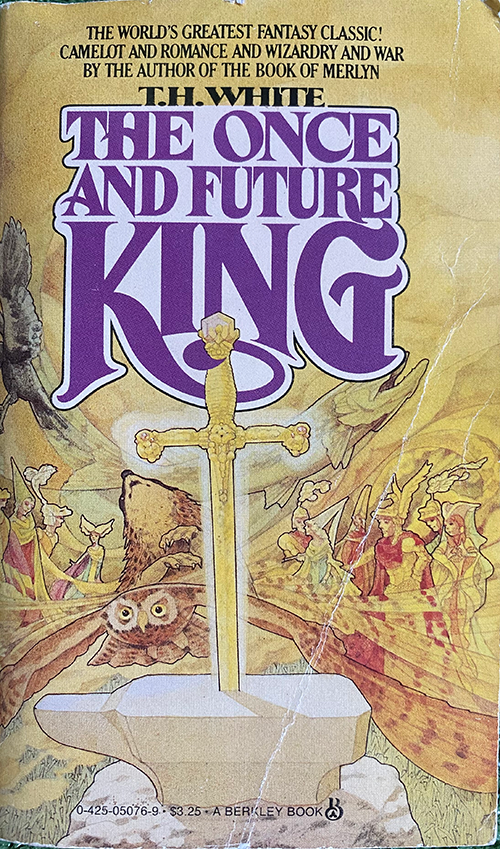
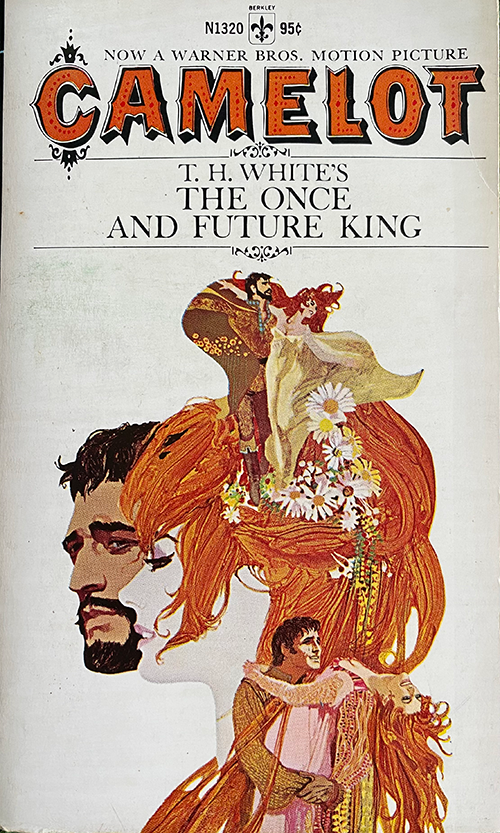

![]()
FAVORITE ARTHURIANA
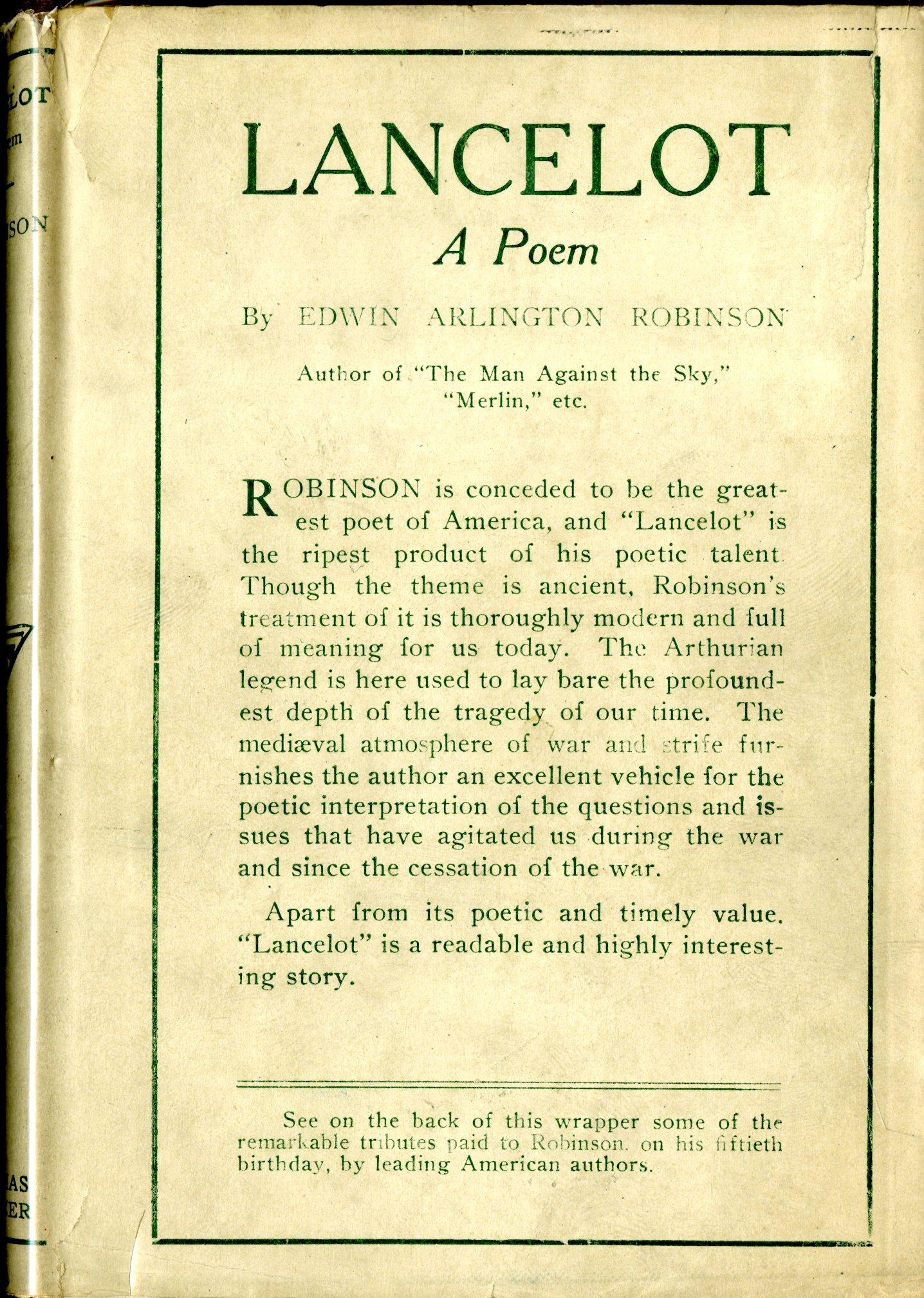
Lancelot: A Poem (E. A. Robinson)
E. A. Robinson's Lancelot is one of my favorite Arthurian texts. Published in 1920, the longform poems sets the scene at the beginning of the end, shortly before Lancelot and Guinevere's relationship is discovered by Mordred, and ends after the fall of Gawain and Arthur.
To me, the most compelling parts of the text revolve around Gawain and Lancelot's interactions. The poem sees them at their best and their worst, with Gawain starting by defending Lancelot with his life and then falling into a blind rage after the death of his kin. Robinson closes out their story in a painful yet heartfelt manner that makes me want to reread the book over and over again.

PDFs & DOWNLOADS
![]()
OTHER LINKS

ARTHURIAN BOOK REVIEWS & THOUGHTS
THE OG LANCELOT STORY. I ended up loving this one more than I expected! For those unfamiliar, Lancelot is somewhat of a latecomer when it comes to Arthurian mythos. Not as late as his son, Galahad (I'm a Galahad hater first sorrrrry), but Lancelot is not one of Arthuriana's earliest figures.
The plot centers largely about Lancelot's quest to free Guinevere, who had been abducted by a bitter noble's son. After a number of quests, much of the text explores courtly love and the subsequent affair between Lancelot and Guinevere.
I wasn't sure what to expect with this one, but friends I had a time and half. Lancelot is whipped, he is single minded, he's deranged, he was raiased by a fairy(?) in a lake and doens't mention it again, he walked across a bridge of sword, he thought gay thoughts about Gawain, truly the man can do it all.
At the end of the day, the love triangle between Lancelot, Guinevere, and Arthur became a fixed part of Arthuriana, and subsequently solidified Lancelot's place in Arthurian texts to come.
Lancelot: The Knight of the Cart | Chrétien de Troyes | 1176
Ahm, I love Gawain. This is a very well known text, and for good reason. It one of the most iconic opening sequences of all time. On Christmas day in King Arthur's court, an enormous figure bursts into the hall. The man is all green, and his horse is all green, and he's carrying an axe. Bad news, obviously. The Green Knight claims that he has come to play a Christmas game. Anyone is allowed to strike him once, but in a year's time he will return the blow.
Gawain, who has never stopped to think once in his life, volunteers, and immedatly cut's the knight's head off, becuase he's normal like that.
The knight is ALSO TOTALLY NORMAL, becuase he does not die! He picks his head up off the ground and parades it around, reminding Gawain that in a year and a day he will return the blow. He tells Gawain to meet him at the Green Chapel, and dips out of there. The people love it. Arthur puts the Knight's axe up on his wall as a trophy, full stop.
The rest of the story follows Gawain on his quest to find the green chapel. He encounters a lot of weird people along the way, and altogether has a good time making out with men and women, like the bisexual king he is.
Definitely feels like a fall/winter read to me, it has that somewhat spooky aura about it.
Sir Gawain and the Green Knight | Unknown | 1350
spoilers below discussing the opener, in case you don't want to be spoiled by a 700 year old poem :)
This beautiful poem is one of my all-time favorites. It follows the story of Elaine of Astolat, also called the Lady of Shalott. Elaine is a young noblewoman cursed to stay in her tower, endlessly weaving a magic tapestry. Additonally, she is not to look out her window, wear Camelot can be seen in the distance. Instead she has a magic mirror or looking glass that she uses to see the world.
Throughout the poem, we see Elaine becoming increasingly unsatisfied & depressed with her isolation. She yearns to experience life as others do and to make connections with other people. This desire to connect with the outside world manifests itself in Sir Lancelot. She hears him singing by the river, and sees him in her magic mirror. Eventually the lure of him is too great, and she finally looks outside to the window. The magic mirro cracks, and the curse sets upon her,e evntually killing her.
Now, it drives me crazy when people say that Elaine dies becuase of unrequited love for Lancelot. True, Lancelot is the breaking point in her fighting the spell, but I don't believe that she loved him personally. She loved the very idea of him. In his introduction, Tennyson describes him as "A red-cross knight for ever kneel'd, To a lady in his shield," indicating that Elaine knows just how much he loves the Queen. You could intepret this as jealousy, but I believe it's simply Elaine longing to be loved in a way such as that. She craves connection and affection, as we see earlier on in the poem when she hears the newly-wedded lovers passing her window, and the famed "half-sick of shadows" line.
The Lady of Shalott | Alfred Tennyson | 1833
spoilers for the story & my thoughts below
What can I say about this one that I didn't already say above? A very underrated piece of Arthurianm literature, a must-read for fans of Lancelot & Gawain.
Lancelot: A Poem | E. A. Robinson | 1920
The one that started it all for me. The Once and Future King is actually split into four different books, with very different focuses.
Book one has a notably different vibe from the rest, as it focuses on Arthur (then known as Wart) as he grows up living with Kay in Sir Hector's home. There Merlin begins giving him lessons using animals as analogies. It's a very sweet book, and what Disney's the Sword and the Stone is based on. At the end of this book Arthur pulls excalibur from the stone and becomes king, starting the more serious narrative. Over the next few books we are introduced to the Orkney lot (Gawain's family), Guinievere, and Sir Lancelot, all who play key roles in the stories overarching narrative.
This is one of my all time favorite books. Although White based the books on Malroy's famed Le Morte d'Arthur, he takes a much more character centric view. He focused much less on the boring details or each tournament and instead analyzes what each character is thinking and feeling.
His Lancelot is endlessly fascinating to me. More narratives about Lancelot paint him as not only the most perfect knight in the world, but the most beautiful one as well. While T. H. White's Lancelot is also the greatest knight in the world, White makes a point of discussing his ugly appearance. Lancelot also struggles heavily with feelings of doubt and self-loathing that often come into play.
Most noteably, T. H. White's Once and Future King is written for a post WWII audience. White's obvious contempt for needless violence and fascism is woven into every thread of the narrative. It can be seen in Merlin’s political teachings to the young Wart, where he warns the young Arthur about the dangers of using power to make people bend to your will. It can be seen later with Arthur himself, as his knights return from their failed grail quests and he criticizes their actions on needless violence.
The Once and Future King is a must-read, in my opinion. I’m not even scraping into the finer details, but the book truly opened my eyes and made me look at things in a different light.
The Once and Future King | T. H. White | 1938-58

“If I were to be made a knight,“ said the Wart, staring dreamily into the fire, "I should insist on doing my vigil by myself, as Hob does with his hawks, and I should pray to God to let me encounter all the evil in the world in my own person, so that if I conquered there would be none left, and, if I were defeated, I would be the one to suffer for it.”
“That would be extremely presumptuous of you,” said Merlyn, “and you would be conquered, and you would suffer for it.”
“I shouldn’t mind.”
“Wouldn’t you? Wait till it happens and see.”
“Why do people not think, when they are grown up, as I do when I am young?”
“Oh dear,” said Merlyn. ’“You are making me feel confused. Suppose you wait till you are grown up and know the reason?”
“I don’t think that is an answer at all,” replied the Wart, justly.
Merlyn wrung his hands.
“Well, anyway,” he said, “suppose they did not let you stand against all the evil in the world?”
“I could ask,” said the Wart.
“You could ask,” repeated Merlyn.
- The Once and Future King, T. H. White
